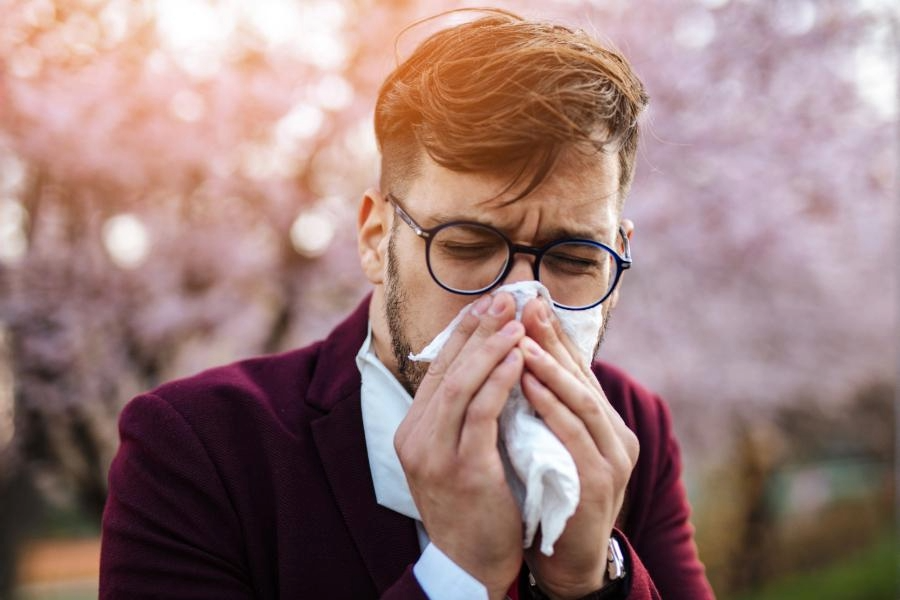How fall allergies affect oral health
Posted on November 7, 2024 in Healthy You

During fall allergy season, most of us picture sneezing, runny noses and itchy eyes. However, seasonal allergies can affect more than just your respiratory system — they can also impact your oral health. Congestion, sore throat, mouth breathing and dry mouth are common allergy symptoms that can lead to dental problems if left unchecked. Here’s how fall allergies might be affecting your mouth and what you can do about it.
Mouth breathing and allergy medications may cause dry mouth
One of the most common seasonal allergy side effects is nasal congestion. When your nose is stuffy, you’re more likely to breathe through your mouth, especially while sleeping. Mouth breathing can cause your mouth to dry out, which reduces saliva production. Saliva is important because it helps wash away food particles and eases harmful acids that can damage tooth enamel.
A dry mouth provides the perfect environment for bacteria to thrive, which can increase your risk of cavities, gum disease and bad breath.
Nasal congestion isn’t the only allergy-related cause of dry mouth. Some allergy medications can lead to dry mouth as a side effect.
What you can do to help: Drinking plenty of water, using a saline nasal spray to clear your nasal passages and using a humidifier may reduce mouth breathing. If you need medication during allergy season, be sure to drink water throughout the day and chew sugar-free gum to keep your mouth moist.
Postnasal drip can cause bad breath
Allergies can also lead to postnasal drip, which happens when extra mucus drains down the back of your throat. This mucus can cause a sore throat and trap bacteria in your mouth. This can also cause bad breath that won’t go away with brushing and flossing alone.
What you can do to help: Gargling with salt water helps soothe your throat, pulls out mucus and reduces the bacteria that causes bad breath. Using a humidifier will also moisten the air in your home to reduce postnasal drip.
Sinus pressure leads to tooth pain
During allergy season, your sinuses can become swollen and push on the roots of your upper teeth, causing tooth sensitivity or pain.
What you can do to help: If your tooth pain worsens or lasts beyond allergy season, it’s important to see a dentist to rule out any dental problems.
Protect your oral health during allergy season
In addition to the tips above, having a good at-home dental routine where you brush twice a day, floss daily and use a mouthwash to keep your teeth and gums healthy is a good way to prevent oral health problems due to seasonal allergies.
Fall allergies mostly affect your sinuses, but they can also harm your oral health. By staying hydrated, managing congestion and maintaining a good oral hygiene routine, you can reduce the negative effects of allergies on your teeth and gums.
SOURCES:
University of Kentucky Dentistry